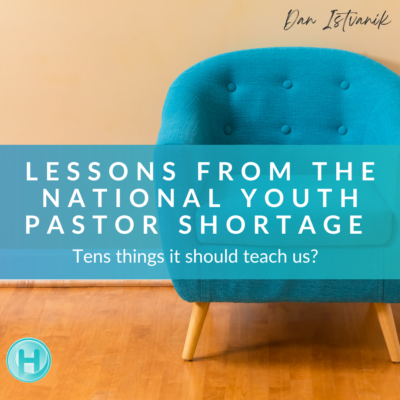Youth Ministry Hints, Youth Ministry Thoughts
Intergenerational Youth Ministry Oxymoron?
A Personal Note: Mel Walker wrote this post a while ago. Mel passed away over a year ago, but he leaves behind a legacy of wisdom and insight personally for me and in the youth ministry world. With continued permission from his family, I share the insights he wrote for this site and others. If you would like to learn more about Mel and his library resources, check out the information in the bio at the end of this post.
_______________________________
Intergenerational Youth Ministry, Oxymoron? We have all heard about “oxymorons”, right? It’s a figure of speech where contradictory terms appear together like…
– Accurate estimate
– Act naturally
– Adult children
– Casual dress
– Sanitary landfill
– Airline food
Someone asked me a while ago if the title of my book, Inter-Generational Youth Ministry: Why a Balanced View of Connecting the Generations is Essential for The Church, is an oxymoron? While I get what they are saying, I don’t believe there should be a conflict. I believe in youth ministry, and I have been actively involved in it in some form or another for more than 40 years. But, I have a growing conviction that if churches totally separate their teenagers from the overall life of the church, they are making a big mistake.
Older adults need the life and energy of youth – and young people (especially during the middle school years) need the wisdom and maturity of older adults.
God designed the church to be inter-generational, and the generations need each other. I am convinced that today’s churches can and should balance their programming and methods so that peer ministry can exist and thrive alongside the inter-generational ministry.
Our students need Godly adults to be actively involved in their lives. I believe that it is essential for the spiritual development of youth that older, Godly adults take the initiative to build growing relationships with them.
Here are some suggestions on how to implement an inter-generational youth ministry
1. Recruit a team of Godly, caring adults to serve as lay youth workers in your church.
With or without a paid youth pastor, your church needs a team of Godly and caring adults to work with teenagers. Please notice the plurality of my terms. I believe in team ministry – different models who can reach and minister to different teens. The main responsibility of any lay youth worker must be to build relationships with teens. That really is the key. Opportunities to teach and disciple will grow out of positive relationships.
Small group leaders are another level of adult interaction with students. Be sure to find adults who have the ability to guide discussions around the Scriptures and who can think on their feet in case the teens ask difficult questions. I think it’s also wise to look for small group leaders who are able and willing to interact with the students on occasions outside of the small group. (Some churches are organizing their entire small group ministry around inter-generational connections, and of course, this would add an interesting dynamic to this type of ministry structure.)
2. Utilize church leaders, parents of teenagers, and other significant adults to serve in your youth group.
Another way to build adults into the lives of the young people in your church is to use significant adults in various ways within the fabric of your existing youth ministry. Here are some practical ideas to consider:
- Ask some parents of teenagers or other adults to accompany your group on youth events or trips.
- Ask church leaders to speak, teach, or otherwise participate in youth group meetings.
- Ask the lead pastor or other pastoral staff members to teach on a specific topic in the youth group.
- Ask select, Godly adults who have unique life experiences to minister to students who are facing some of the same experiences.
- Give older, Godly adults the opportunity to share their story (or their testimony) with teenagers.
3. Ask Godly parents of teenagers to build healthy, growing relationships with their kids’ friends.
Parents of kids in your church can be the ideal people to minister to their kids’ friends – especially if you have young people involved in your ministry who are from dysfunctional home situations. When our own children were teenagers, we often encouraged them to invite their friends over to our house. This provided a safe atmosphere for our kids and gave us the opportunity to get to know their friends. It might be a good idea to be intentional about making this kind of thing happen with Godly parents of teens in your church.
4. Motivate your church’s senior citizens to pray specifically and intentionally for young people – by name!
I am excited about a growing trend around the country to intentionally involve senior citizens in specific ways with teenagers and young adults. This absolutely must start with prayer. Do whatever you can to motivate your church’s oldest adults to pray specifically, by name for the young people. This simple practice will put a growing burden on their hearts for the students – and honestly, it has the potential to revolutionize your church and shatter its’ generation gap!
Friends, I am convinced that by implementing some of the above ideas, your church can develop a truly inter-generational youth ministry. It is not an oxymoron! Blessings- MEL
 Mel Walker was the co-founder and president of Vision For Youth (an international network of youth workers) and the youth pastor at Wyoming Valley Church in Wilkes-Barre, PA. Mel & his wife, Peggy, were the parents of 3 grown children, all of whom are in vocational ministry. He was the author of 12 books on various aspects of youth ministry, including Going On For God: Encouraging the Next Generation to Grow Up & Go On For God. You can find more about his ministry at: www.GoingOnForGod.com.
Mel Walker was the co-founder and president of Vision For Youth (an international network of youth workers) and the youth pastor at Wyoming Valley Church in Wilkes-Barre, PA. Mel & his wife, Peggy, were the parents of 3 grown children, all of whom are in vocational ministry. He was the author of 12 books on various aspects of youth ministry, including Going On For God: Encouraging the Next Generation to Grow Up & Go On For God. You can find more about his ministry at: www.GoingOnForGod.com.
* Last year, his family released his final book in his honor, “Youth Ministry Questions”. A book I would highly recommend that continues the above conversation and the need for Inter-Generational Youth Ministry




